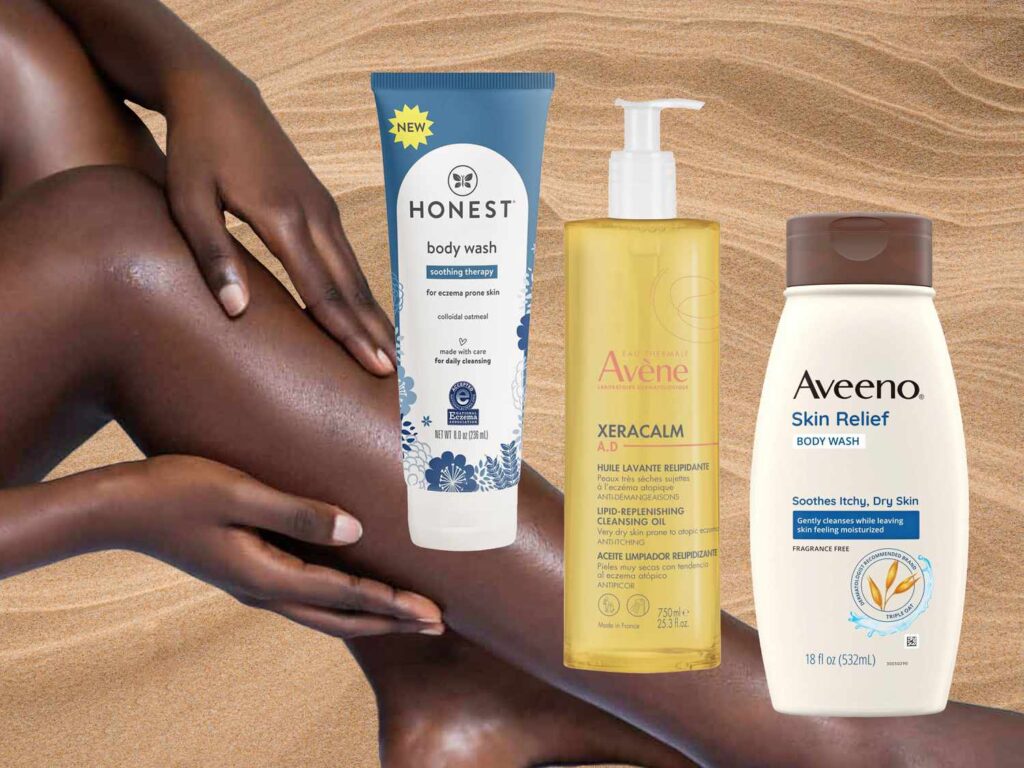Living with eczema-prone skin can be challenging. It requires more than just a typical skincare routine—what works for others may trigger irritation, redness, or painful flare-ups in your case. Eczema, also known as atopic dermatitis, is a condition that makes the skin dry, itchy, inflamed, and hypersensitive. While there’s no permanent cure, the right skincare approach can manage symptoms and help maintain healthy, comfortable skin.
If you or someone you care about struggles with eczema-prone skin, this guide will provide practical, dermatologist-informed tips and product recommendations to build a calming and effective skincare routine.
Understanding Eczema-Prone Skin
Eczema affects the skin’s natural barrier, making it more vulnerable to moisture loss, allergens, and irritants. The result? Dry, itchy, and sometimes cracked skin. Factors such as weather changes, harsh skincare ingredients, stress, and even certain fabrics can trigger or worsen the condition.
Because eczema compromises the skin barrier, your skincare should focus on hydration, barrier repair, and avoiding triggers.
Core Skincare Routine for Eczema-Prone Skin
A consistent and minimalist routine is key. You don’t need a shelf full of products—just a few that are gentle, fragrance-free, and packed with hydrating and soothing ingredients.
1. Gentle Cleansing
Cleansing is crucial, but it must be done with extreme care. Many cleansers strip the skin of its natural oils, which can aggravate eczema.
Look for:
- Fragrance-free, sulfate-free cleansers
- Cream or oil-based formulas
- Ingredients like ceramides, glycerin, and colloidal oatmeal
Avoid:
- Foaming cleansers
- Exfoliating scrubs
- Harsh soaps
Recommended tip: Use lukewarm—not hot—water to cleanse your face or body, as hot water can worsen dryness.
2. Hydrating and Barrier-Repair Moisturizers
Moisturizing is the most important step in caring for eczema-prone skin. You should apply moisturizer immediately after cleansing to lock in hydration.
Ideal ingredients include:
- Ceramides
- Hyaluronic acid
- Shea butter
- Squalane
- Panthenol
How often?
Apply at least twice a day—once in the morning and once at night. During flare-ups, you may need to apply more frequently.
3. Spot Treatments for Flare-Ups
When you experience a flare-up, apply a targeted treatment to calm inflammation.
Natural soothers:
- Aloe vera gel (pure and alcohol-free)
- Colloidal oatmeal paste
- Calendula cream
For intense flare-ups: You may need to consult a dermatologist for a prescription-strength topical steroid or non-steroidal anti-inflammatory cream.
4. Sunscreen Is Non-Negotiable
Many people with eczema skip sunscreen for fear of irritation, but the right formula can protect the skin from UV damage without causing flare-ups.
Choose:
- Mineral-based sunscreens (zinc oxide or titanium dioxide)
- Fragrance-free and alcohol-free formulas
- SPF 30 or higher
Avoid:
- Chemical sunscreens (like oxybenzone and avobenzone)
- Sunscreens with essential oils or strong scents
Optional: Serums and Treatments
If you want to incorporate treatments like serums, proceed carefully. Some ingredients may irritate eczema-prone skin, but that doesn’t mean you have to skip them altogether.
Best options for eczema-safe serums:
- Niacinamide (anti-inflammatory and strengthens the skin barrier)
- Hyaluronic acid (deep hydration)
- Azelaic acid (mild exfoliation and anti-redness)
Many people worry that using anti-aging products might worsen sensitive skin, but with the right selection, it’s possible to treat fine lines and dryness without irritation. A great place to start is exploring Anti-Aging Serums That Work Under $30, which often feature gentle yet effective ingredients like peptides, bakuchiol (a retinol alternative), and vitamin C in low concentrations. Always patch-test before using a new product on your face.
Ingredients to Avoid with Eczema-Prone Skin
Some common skincare ingredients may trigger or worsen eczema. Here’s what to stay away from:
- Fragrance (both synthetic and natural)
- Alcohol (especially denatured alcohol)
- Harsh acids (like glycolic acid or high-strength retinol)
- Essential oils (e.g., lavender, peppermint, citrus oils)
- Menthol or camphor
- Sulfates and parabens
Lifestyle Tips for Eczema-Friendly Skin
- Use a humidifier in your bedroom during dry seasons to prevent moisture loss.
- Avoid wool and rough fabrics—they can cause friction and trigger flare-ups.
- Manage stress, which is a known trigger for eczema. Meditation, deep breathing, or even short walks can help.
- Be mindful of your diet—some people find flare-ups related to gluten, dairy, or sugar.
- Stay hydrated—drink plenty of water throughout the day.
Natural Remedies That May Help
While over-the-counter products are helpful, some natural remedies can complement your routine:
- Coconut oil: Has antimicrobial properties and can deeply hydrate the skin.
- Colloidal oatmeal baths: Soothe itching and irritation.
- Sunflower seed oil: Rich in linoleic acid, it supports skin barrier repair.
Note: Always patch-test natural remedies before full use.
When to See a Dermatologist
If your eczema symptoms are severe, persistent, or impacting your daily life, consult a dermatologist. You may need prescription treatments, allergy testing, or advanced care options like phototherapy.
Final Thoughts
Skincare for people with eczema-prone skin doesn’t have to be complicated—but it does require care, patience, and consistency. By choosing the right products, avoiding common irritants, and keeping the skin barrier strong, you can significantly reduce flare-ups and discomfort.
Stick to gentle, hydrating formulas and protect your skin with barrier-focused care. And if you want to address signs of aging without triggering sensitivity, even sensitive skin types can benefit from options like Anti-Aging Serums That Work Under $30, as long as the ingredients are carefully chosen.
With the right approach, your skin can stay calm, healthy, and resilient—even with eczema.







